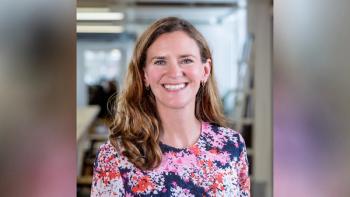
FDA Accepts sBLA for Interchangeability Designation for Latest Humira Biosimilar
Adalimumab-bwwd (Hadlima; Samsung Bioepis Co., Ltd. and Organon & Co.) is seeking to become the third Humira biosimilar deemed interchangeable with the reference product.
The FDA has accepted a Supplemental Biologics License Application (sBLA) for interchangeability designation for a new adalimumab (Humira) biosimilar, adalimumab-bwwd (Hadlima; Samsung Bioepis Co., Ltd. and Organon & Co.) injection 40 mg/0.4 mL.
Earlier this year, the FDA granted interchangeability designation to adalimumab-afzb (Abrilada), which was the second Humira biosimilar deemed interchangeable behind adalimumab-adbm (Cyltezo), the only other adalimumab biosimilar with granted interchangeability. Abrilada was the fifth biosimilar overall granted the interchangeability designation.
“Following our announcement on the interchangeability study’s topline results in August, we are excited to share the progress on this sBLA filing on interchangeability. This filing acceptance is a reinforcement of our commitment to provide better access to biologic medicines for patients in the United States,” said Vice President and Regulatory Affairs Team Leader at Samsung Bioepis, Byoung In Jung, in a press release. “We will continue to drive our goal of realizing the value of biosimilars for patients and contributing to the sustainability of healthcare systems.”
A biosimilar granted the interchangeability designation can be substituted for the reference product at the pharmacy level without gaining permission from a physician. Interchangeability designation allows for lower wait times for patients to obtain their medications and improves biosimilar accessibility.
Biosimilars and interchangeable biosimilars do not have any clinically meaningful differences from the branded biologic products for their approved indications in terms of safety, purity, and potency. To be granted the designation by the FDA, the manufacturer must prove the candidate is biosimilar to the reference product; that the biosimilar can be expected to produce similar clinical outcomes as the reference product; and that the risk of adverse events or reduced efficacy from alternating or switching between the biosimilar and the reference product is not greater than the risk of using the reference product without a switch.
The sBLA filing was based on clinical data from a Phase 4, randomized, double-blind, parallel-group, multiple-dose, active comparator, multicenter clinical study (
The FDA approved Hadlima in July 2019 as a low-concentration (40 mg/0.8 mL) formulation of the prefilled syringe and prefilled autoinjector, whereas the agency approved the high-concentration (40 mg/0.4 mL) formulation of Hadlima in August 2022. The biosimilar for the tumor necrosis factor blocker launched on the US commercial market on July 1, 2023, marketed by Organon.
Adalimumab biosimilars are tumor necrosis factor-⍺ inhibitors that are indicated for several rheumatic and gastroenterology conditions, such as rheumatoid arthritis, psoriatic arthritis, juvenile idiopathic arthritis, Crohn disease, ulcerative colitis, ankylosing spondylitis, and plaque psoriasis.
Abrilada was originally approved by the FDA in November 2019. Nine adalimumab biosimilars have been approved by the FDA to date, with Abrilada set to launch on the US market listed at a cost 5% below the Humira list price (Table).
To date, two insulin glargine biosimilars, Rezvoglar and Semglee, and Cimerli, a ranibizumab biosimilar, have gained interchangeability designations.
“An interchangeability designation may play a role beyond enabling pharmacy substitution,” said Jon Martin, Head, US Biosimilars at Organon, in a press release. “We believe that interchangeability could help increase physician confidence with prescribing biosimilars, especially in the high-concentration formulation which is used by the majority of Humira patients. We remain committed to helping more patients access biosimilar alternatives.”
References
Samsung Bioepis & Organon Announce FDA Acceptance of Supplemental Biologics License Application (sBLA) for Interchangeability Designation for HADLIMA™ (adalimumab-bwwd), a Biosimilar to Humira®. Samsung Bioepis Co., Ltd. News release. November 9, 2023.
Newsletter
Lead with insight with the Pharmaceutical Executive newsletter, featuring strategic analysis, leadership trends, and market intelligence for biopharma decision-makers.




